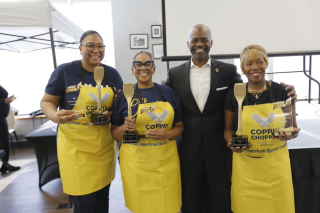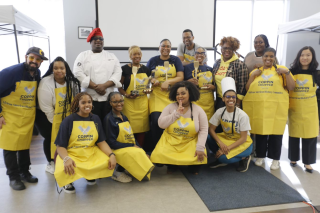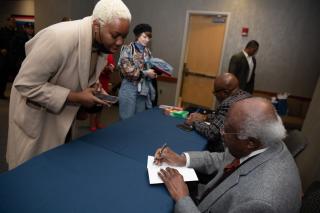Black History Month: A Century of Black History Commemorations
2026

Coppin State University invites all to join in the planned activities in observance of Black History Month as we reflect on the accomplishments, history, and culture of African-Americans. This year's celebration revolves around the theme "A Century of Black History Commemorations" in conjunction with the Association for the Study of African American Life and History.
2026 marks a century of national commemorations of Black history. Dr. Carter Godwin Woodson, George Cleveland Hall, William D. Hartgrove, Jesse E. Moorland, Alexander L. Jackson, and James E. Stamps institutionalized the teaching, study, dissemination, and commemoration of Black history when they founded the Association for the Study of Negro Life and History (ASNLH) on September 9, 1915.
In 1925, when Dr. Carter G. Woodson planned the inaugural week-long observance of Black history, he could hardly have anticipated the imprint he would leave on the world. From Negro History Week to Black History Month, ASALH has carried forth the tradition, and the observances have become part of the warp and weft of American culture and increasingly the global community. For our 100th theme, the founders of Black History Month urge us to explore the impact and meaning of Black history and life commemorations in transforming the status of Black peoples in the modern world.
As part of the global African diaspora, people of African descent in the United States have viewed their role in history as critical to their own development and that of the world. Along with writing Black histories, antebellum Black scholars north of slavery started observing the milestones in the struggle of people of African descent to gain their freedom and equality. Revealing their connection to the diaspora, they commemorated the Haitian Revolution, the end of the slave trade, and the end of slavery in Jamaica. They observed American emancipation with Watch Night, Jubilee Day, and Juneteenth celebrations. Eventually they feted the lives of individuals who fought against slavery, most notably Abraham Lincoln and Frederick Douglass. The scholar Arthur A. Schomburg captured the motivation of Black people to dig up their own history and present it to the world: “The American Negro must remake his past in order to make his future.”
When Carter G. Woodson, as director of the Association, established Negro History Week, he did so as part of that tradition. Yet, by concentrating the attention of the American public on the scientific findings of historians, he sought to turn the commemorations more forthrightly into a far-reaching, organized, and sustained effort to transform how Black folks viewed themselves and how the world viewed them. Year after year, he built Negro History Week into an African American and American cultural institution. He set the themes and provided materials to illustrate the contributions people of African descent had made to the movement of history and modern culture. As his contemporary W. E. B. Du Bois put it, “He literally made this country … recognize and celebrate each year a week in which it studied the effect which the American Negro has had upon the life, thought and action in the United States. I know of no other man who in a lifetime has unaided built up such a national celebration.”
Since the passing of the founder, ASALH has continued his work, making Negro History Week and Black History Month an even more deeply rooted American institution. On February 10, 1976, during the United States Bicentennial, President Gerald R. Ford became the first president to issue a message recognizing Black History Month. Then in 1986, Congress passed Public Law 99-244 designating February as Black History Month. These efforts have made February the month when Black history finds its way not simply into the schools of the American nation, but also into cultural heritage sites (museums, archives, libraries, parks, etc.), public squares, workplaces, houses of worship, and homes across the land and across the oceans. These institutions offer sites to discover and learn more about African American history through programming, camps, book displays, and exhibitions.
To understand the modern world, especially nations where Black peoples form a significant population, one must grapple with the impact that the public observances have had on the past and the present. This year, when we are also commemorating the 250th anniversary of United States independence, it is important to tell not only an inclusive history, but an accurate one. We have never had more need to examine the role of Black History Month than we do when forces weary of democracy seek to use legislative means and book bans to excise Black history from America’s schools and public culture. Black history’s value is not its contribution to mainstream historical narratives, but its resonance in the lives of Black people.
From Association for the Study of African American Life and History
Events & Activities
Join us for campus-hosted events and activities.


Lift Every Voice: 100 Years of Commemorating Black History
February 2, 2026, 12:00 PM - 1:15 PM, Virtual Online

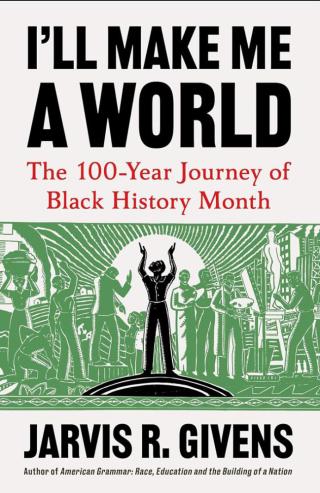

ASCEND HBCU Tour & Civic Engagement Sessions
February 5, 2026, 9:00 AM - 12:00 PM, Tawes Ballroom
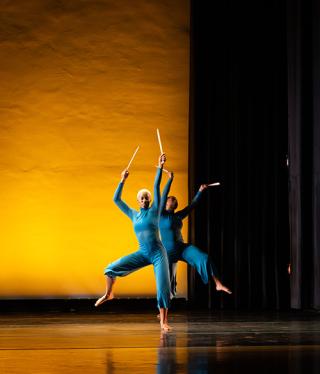
Celebration: Uplifting & Honoring the Culture & History of Black Dance
February 11, 2026, 7:30 PM, Gordon Center for Performing Arts, 3506 Gwynnbrook Ave., Owings Mills, Maryland, 21117
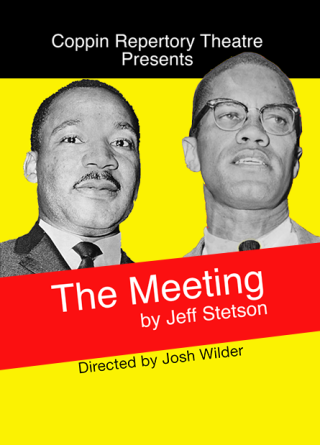
Coppin Repertory Theatre presents The Meeting
February 12, 2026 - March 1, 2026, The Theatre Lab, Grace Jacobs, Lower Level

Divine Defiance: Merging Faith with Activism to Address Today’s Urgent Social Issues
February 12, 2026, 1:00 PM - 1:30 PM

Where the Bass Lives, From Chicago to the Charm City: House Music and Black Baltimore, 1986-2026
February 17, 2026, 12:30 PM - 1:30 PM, Virtual Online
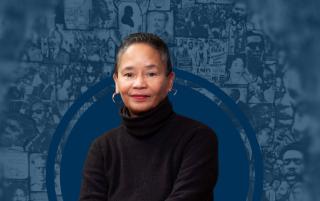
A Celebration of 100 Years of African American History
February 19, 2026, 3:00 PM - 5:00 PM, Virtual Online
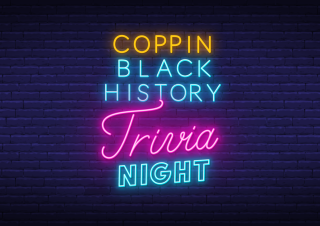
Black History Trivia Night
Rescheduled. Date TBA

Coppin Chopped: The Black Table
February 18, 2026, 12:00 PM - 2:00 PM, Talon Center Dining Hall


Preserving the Past, Designing the Future: Empowering the Next Generation of Educators through Technology and Invention
February 24, 2026, 1:00 PM - 2:00 PM, Virtual Online
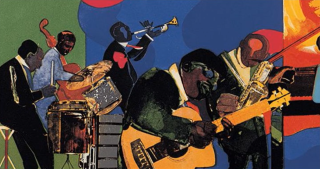
The Harlem Renaissance
March 6, 2026, 3:00 PM - 5:00 PM, The Mill on North, 2636 W. North Avenue
2026 African American History Month activities are sponsored by the Coppin State University Division of Academic Affairs.
Support is also provided by Thompson’s Hospitality, Inc., the Division of Enrollment Management and Student Affairs, and the Alumni Engagement office.
African American History Committee
Chair
- Savoy, Yolanda
Members
- Anthony, Nicole
- Asamoah, Marita - (CSU Student)
- Brockington, Tiffany
- Brooks, Erinn
- Brown, James
- Campbell, Loretta
- Dickerson, CherRae
- Green, Sandra
- Hardwick, Cathy
- Iqbal, Gazi Md Daud
- Jackson, Vanessa
- Ledesma, Carlos
- Lewis-Mhoon, Abena
- Nelson, Carlin
- Nelson, Kimberly
- Rigby, Melissa
- Roane, Angel
- Smith, Delores
- Tatum, Aerian
- Tolson, Danita
- Torres, Annie
- Veale, Jennifer
- Wallace, Lauryn - (CSU Student)
- Williams, Ron
